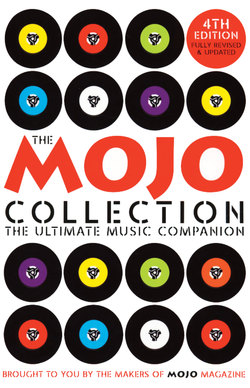Читать книгу The Mojo Collection - Various Mojo Magazine - Страница 184
На сайте Литреса книга снята с продажи.
Alexander Spence Oar Among the most enigmatic solo albums in all of pop music.
ОглавлениеRecord label: CBS
Produced: Alexander Spence
Recorded: Columbia Studios, Nashville, Tennessee; December 16, 1968
Released: October 1969 (UK) May 19, 1969 (US)
Chart peaks: None (UK) None (US)
Personnel: Alexander Spence (all instruments, v); Charlie Bradley, Mike Figlio, Don Meehan (e)
Track listing: Little Hands; Cripple Creek; Diana; Margaret-Tiger Rug; Weighted Down; War In Peace; Broken Heart; All Come To Meet Her; Books Of Moses; Dixie Peach Promenade; Lawrence Of Euphoria; Grey; Afro
Running time: 60.39
Current CD: Sundazed SC 11075 adds: This Time He Has Come; It’s The Best Thing For You; Keep Everything Under Your Hat; Furry Heroine (Halo Of Gold); Givin’ Up Things; If I’m Good; You Know; Doodle; Fountain; I Think You And I
Further listening: Moby Grape – Moby Grape (1967); Oar tribute album, More Oar (1999)
Further reading: www.mobygrape.net (official)
Download: Not currently legally available
The man who walked into Columbia studios in Nashville in December 1968 to make Oar was a man with a troubled history. Alexander ‘Skip’ Spence had fallen out of Moby Grape in New York earlier that year, soon after the release of Wow, their excessive (but mostly superb) second album. He did not have a good time in the Big Apple; the large quantities of psychedelic drugs Spence consumed took their toll on the man. Following a violent studio incident in July 1968 in which he went after his fellow Grapesters with an axe – truly, rock criticism of the harshest sort – Spence was arrested and eventually committed to New York’s Bellevue Hospital for six months. When he emerged, Columbia – amazingly – gave him the opportunity to record again and bankrolled the Nashville sessions that would comprise Oar. And what very weird sessions they were.
Among Oar’s major claims to fame is its status as one of the very first true solo, multi-tracked rock recordings. Spence indeed played and sang every note on the album – guitar, bass, drums and unforgettably intimate vocals included – in a series of sessions that in fact took several days, despite the album’s back-cover claim of a one-day affair. Still, the looseness of the songs, the haphazard rhythms and fade-in/fade-out guitar overdubs made that claim believable, which only added to the album’s mystique. Then again, there were the songs themselves. One could easily imagine him making them up while staring at the walls of the mental hospital he had just spent six months in.
‘I remember him,’ says Mike Figlio, the Columbia engineer most intimately involved in the making of the record. ‘He was kind of a way-out cat, creative, knew what he wanted. He just did one instrument at a time, just kept building it – and once we got it all down as far as instruments, he and I sat in the studio and decided how we wanted to mix it and how we wanted to make it sound.’
‘I think it’s genius,’ Moby Grape guitarist Jerry Miller now says of Oar. But at the time, Columbia Records didn’t agree – which might be a major reason the album sold minimally and was (despite favourable reviews) quickly deleted. ‘I think they humoured him. Not that they didn’t promote it – but I don’t know how they could’ve ever thought it was mainstream enough to do anything with.’
